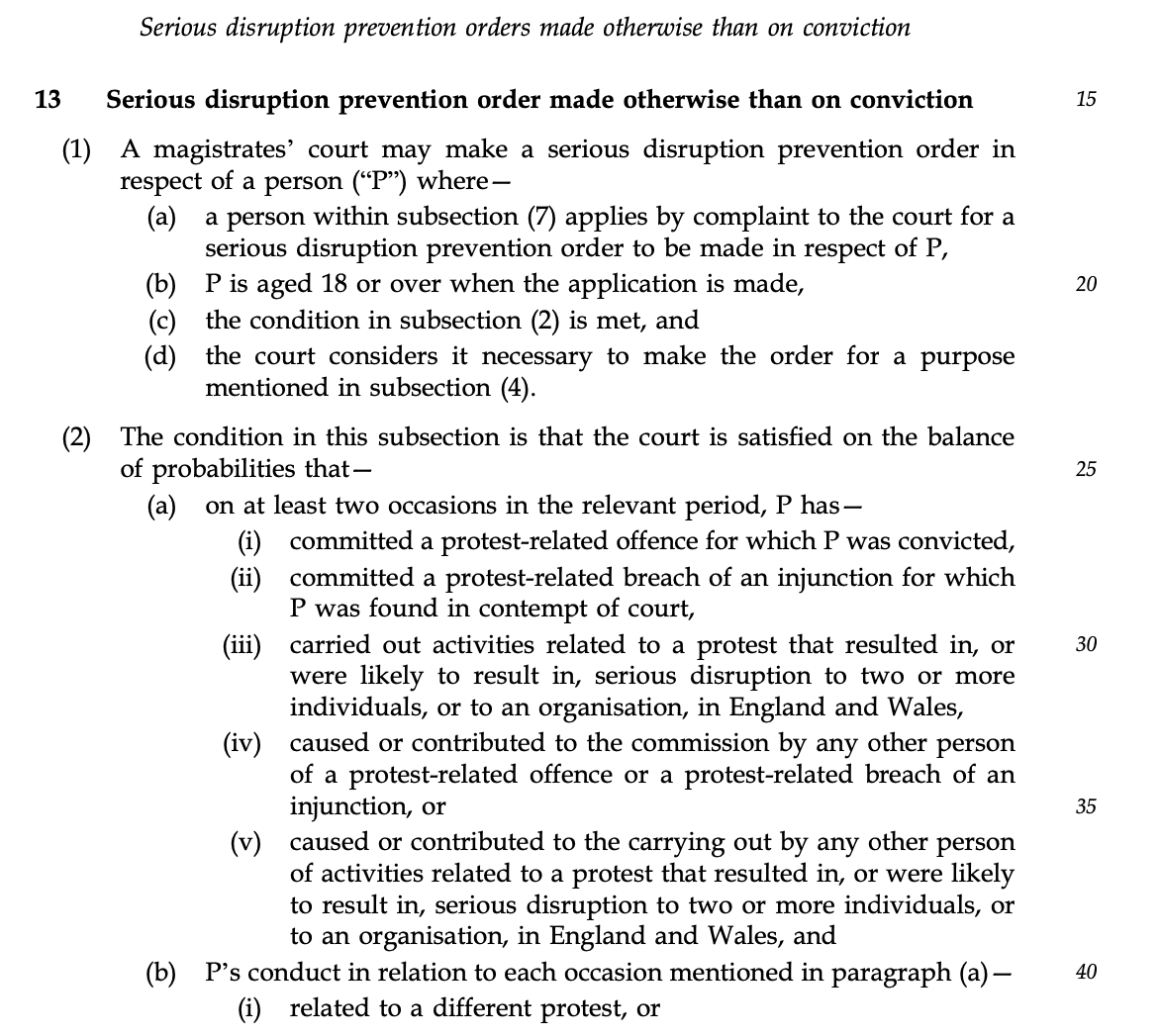
In a nutshell: if you participate in two protests in the space of five years, *just because of that* (ie even if you were not convicted of any offence), you can be subject to an SDPO which includes restrictions on your liberty, electronic surveillance, and more. #PublicOrderBill
https://twitter.com/hyjpang_/status/1526497923521036290
To recap: the House of Lords throws out some of the most contentious provisions from the Police, Crime, Sentencing and Courts Bill (now law) because they were manifestly authoritarian in nature, and the Gov't now doubles down on them in the #PublicOrderBill? This is scary stuff
And once you read the Gov't's efforts to limit and prevent protests in the context of the wider 'reform' of electoral procedure/institutions (see
https://twitter.com/ukcla/status/1526110226641997824?s=20&t=DALyTBC6x115ZVLpwzGVnw), I genuinely wonder what must happen for people across the political spectrum to sound the RED ALERT alarm?
@SeethingMead @AdamWagner1 @BarristerSecret, this is seriously scary stuff (not just the content, but also the modus operandi)
@SeethingMead @AdamWagner1 @BarristerSecret I mean, this is BEYOND: you could be subject to SDPO if you 'carried out activities related to a protest' that 'were likely to result' in 'serious disruption' to 'two or more individuals' - ie EVEN IF NO ACTUAL 'DISRUPTION' took place: 

• • •
Missing some Tweet in this thread? You can try to
force a refresh



